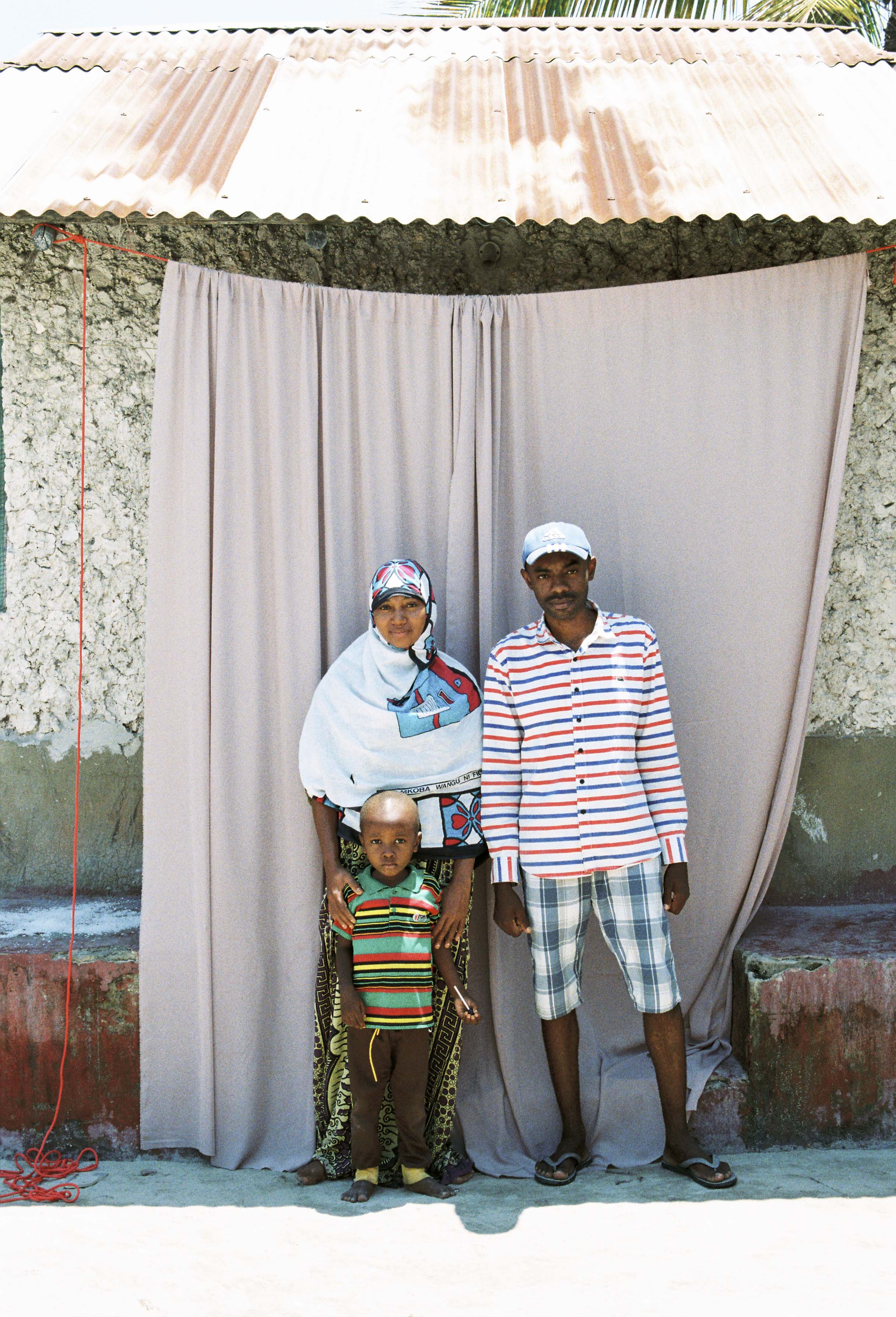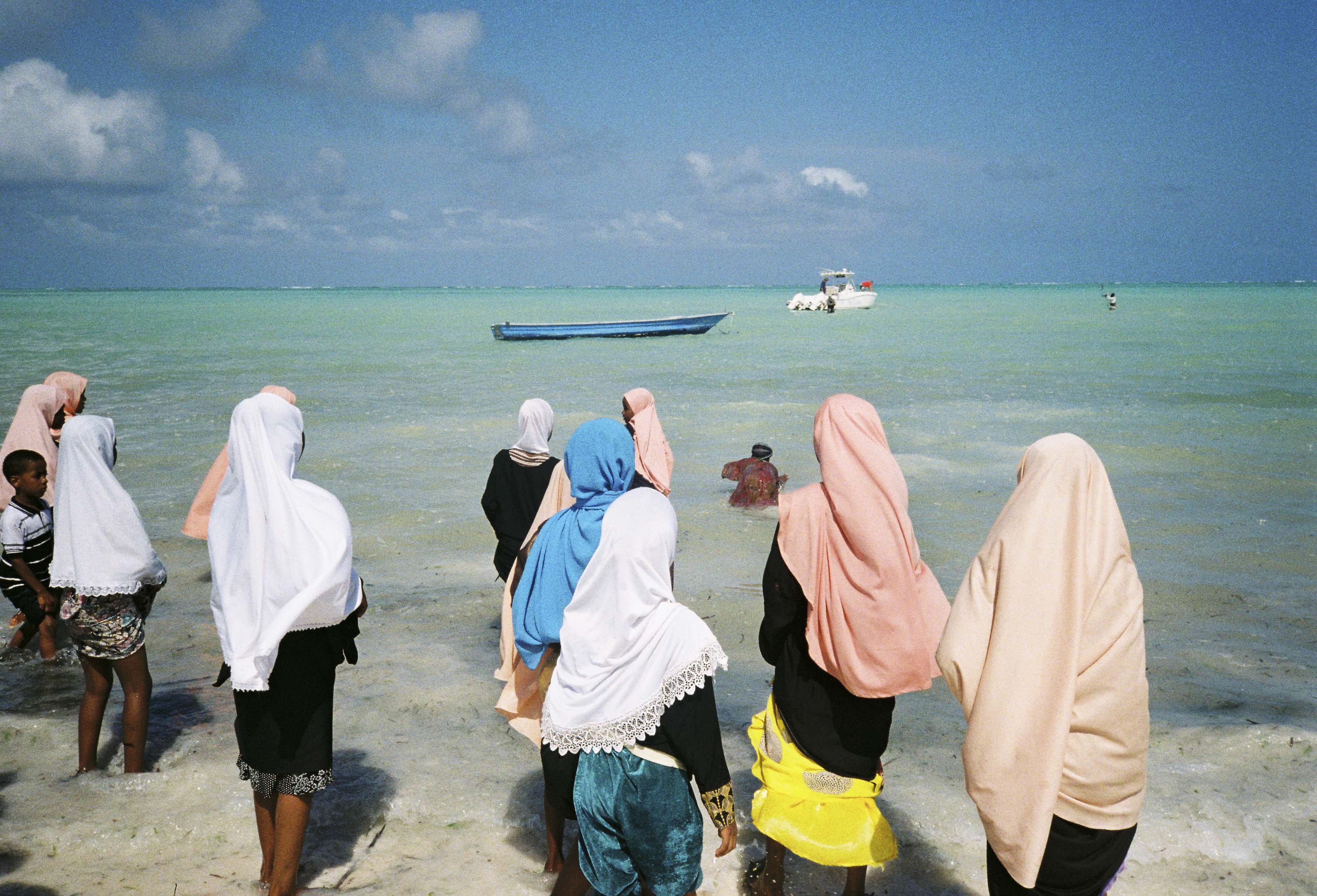I Thought of You as Gold but You are Such a Pain - Photobook Dummy
Sehnsucht is a term that came into use during the German romantic period; it describes the longing to exist in a reality other than one’s own.
Places described as Sehnsuchtsorte are usually real – like Zanzibar. There are many reasons why Germans connect the name of an island on the eastern coast of Africa with such grand expectations. Most immediately, the tourism industry markets Zanzibar as a tropical paradise. While Zanzibar itself never fell under German administration, it was a site of overlapping imperial encounters, serving as a centre of the slave trade under Arabic rule before becoming a British protectorate in the nineteenth century. After the 1963 dissolution of its protectorate status, Zanzibar became part of the newly-formed postcolonial nation of Tanzania. For decades, Tanzania was one of the poorest countries in the world; while conditions have improved since the 1980s, it is still economically fragile. The German fantasy of Zanzibar as Sehnsuchtsort, then, exists in perpetual tension with the historical reality of Zanzibar as a product of unequal and often exploitative global developmental trends.
The photographer Mirjam Wählen was well aware of this tension when she traveled to Zanzibar. Her portraits acknowledge the educational, infrastructural, and health care disadvantages faced by locals, without fetishizing them. They approach Zanzibari culture with curiosity and respect, refusing the typical German Sehnsucht that has transformed Zanzibar into an imaginary utopia while robbing it of its history. Ironically, for some Africans, it is Europe that acts as a Sehnsuchtsort: promises of a better life in Europe drive dangerous migrations, leading some to death in the Mediterranean and others to an uncertain future in poorly-maintained camps or a state of legal limbo. When Europeans pursue their Sehnsucht, the most they risk is disillusionment; when Africans pursue theirs, they risk their lives and freedom. The photos of Mirjam Wählen strive to replace Sehnsucht with a respectful perspective, a distance that nevertheless cares – a glimpse into a more multipolar reality. (edited) by Hendrik Lakeberg
Places described as Sehnsuchtsorte are usually real – like Zanzibar. There are many reasons why Germans connect the name of an island on the eastern coast of Africa with such grand expectations. Most immediately, the tourism industry markets Zanzibar as a tropical paradise. While Zanzibar itself never fell under German administration, it was a site of overlapping imperial encounters, serving as a centre of the slave trade under Arabic rule before becoming a British protectorate in the nineteenth century. After the 1963 dissolution of its protectorate status, Zanzibar became part of the newly-formed postcolonial nation of Tanzania. For decades, Tanzania was one of the poorest countries in the world; while conditions have improved since the 1980s, it is still economically fragile. The German fantasy of Zanzibar as Sehnsuchtsort, then, exists in perpetual tension with the historical reality of Zanzibar as a product of unequal and often exploitative global developmental trends.
The photographer Mirjam Wählen was well aware of this tension when she traveled to Zanzibar. Her portraits acknowledge the educational, infrastructural, and health care disadvantages faced by locals, without fetishizing them. They approach Zanzibari culture with curiosity and respect, refusing the typical German Sehnsucht that has transformed Zanzibar into an imaginary utopia while robbing it of its history. Ironically, for some Africans, it is Europe that acts as a Sehnsuchtsort: promises of a better life in Europe drive dangerous migrations, leading some to death in the Mediterranean and others to an uncertain future in poorly-maintained camps or a state of legal limbo. When Europeans pursue their Sehnsucht, the most they risk is disillusionment; when Africans pursue theirs, they risk their lives and freedom. The photos of Mirjam Wählen strive to replace Sehnsucht with a respectful perspective, a distance that nevertheless cares – a glimpse into a more multipolar reality. (edited) by Hendrik Lakeberg
















